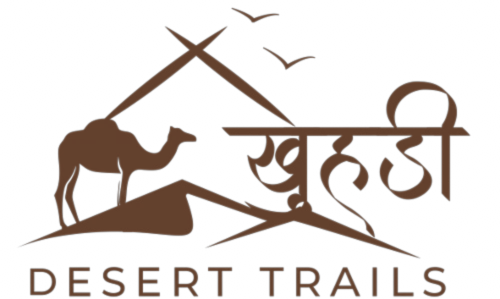Tucked away in the vast Thar Desert, the tiny village of Khuri, near Jaisalmer, Rajasthan, offers an experience that goes far beyond the typical tourist trail. As the sun sets over rolling golden dunes, the desert comes alive with the sounds of folk music, traditional dances, and stories passed down through generations.
A Cultural Night at a Dune Dinner in Khuri is not just an evening of food and entertainment—it’s a deep dive into Rajasthani culture and desert heritage, all under the open sky.
What is a Dune Dinner?
Unlike the commercial desert experiences in larger cities, Khuri offers an authentic, peaceful alternative. Just 50 km from Jaisalmer, Khuri is known for its sand dunes, mud-walled homes, and warm hospitality.
A typical Dune Dinner here starts with a camel safari into the dunes, often timed to catch the spectacular desert sunset. Once at the desert camp, guests are welcomed with Rajasthani chai and snacks, followed by a traditional vegetarian or non-vegetarian dinner cooked on-site.
But what truly sets the evening apart is the cultural performance, showcasing Rajasthan’s rich musical and dance heritage.
The Rhythms of Rajasthan: Folk Music in the Dunes
Rajasthan’s folk music is rooted in the everyday life of its people—songs of love, longing, heroism, and devotion. In Khuri, performances are usually by local Manganiyar or Langa musicians, who have been preserving these traditions for centuries.
They play instruments like the kamaicha (a string instrument made of mango wood), khartal (wooden castanets), and dholak (hand drum). Their soulful voices echo across the dunes, often performing songs like "Kesariya Balam" or "Nimbooda" with deep emotion and powerful storytelling.
Live music here is not staged—it’s felt. Many guests find themselves drawn in, clapping along to the rhythms or simply watching in awe as the desert night fills with song.
Traditional Dance That Tells a Story
Kalbelia Dance
One of the highlights of Khuri’s cultural nights is the Kalbelia dance, performed by women from the Kalbelia (snake charmer) community. Dressed in black swirling skirts with vibrant embroidery and mirror work, dancers mimic the graceful movements of snakes. It’s hypnotic, fast-paced, and full of life.
Ghoomar and Bhavai
Other dances like Ghoomar, performed in slow circles with flowing ghagras (skirts), and Bhavai, where women balance multiple pots on their heads while dancing, may also be part of the evening.
These performances aren’t just for show—they’re living expressions of community identity, often accompanied by live musicians who adapt the rhythm based on the dancer’s movements.
Folklore and Oral Traditions
In Khuri, storytelling often blends with music and poetry. Elder villagers or musicians might share folktales of local heroes, Rajput kings, or desert spirits.
You may hear stories of Pabuji, a folk deity believed to protect camels, or legends about the origins of certain musical traditions. Some tales are light-hearted and humorous; others carry deep moral or spiritual meaning.
This is the desert’s way of keeping history alive—no script, no screen—just memory, voice, and sand.
Hands-On Cultural Experiences in Khuri
A Cultural Night in Khuri isn’t limited to performances. Visitors are invited to take part in:
-
Camel Safari: Ride through silent dunes at sunset for an unforgettable view.
-
Rajasthani Cuisine: Try local specialties like ker sangri, dal baati churma, and gatte ki sabzi, all served fresh at the camp.
-
Local Interaction: Share stories with villagers, watch them cook, or learn about their day-to-day life.
-
Traditional Attire & Henna: Dress up in Rajasthani turbans or lehengas for a photo, or get a henna tattoo drawn by local women.
Many homestays and camps also offer overnight stays in mud huts or tents, giving you a full rural desert immersion.
Why Khuri’s Cultural Nights Stand Out
Khuri doesn’t host commercial shows or crowded setups. Here, cultural nights are small, personal, and community-driven. The artists are locals, and your visit directly supports their livelihood and helps preserve their traditions.
These experiences also promote responsible tourism—focusing on authentic connections over curated spectacles.
Tips for Enjoying Your Evening in Khuri
-
Wear comfortable clothes: Loose cottons are ideal. Bring a shawl—it can get cool after sunset.
-
Be respectful: Avoid loud conversation during performances and ask before photographing performers.
-
Book through local hosts: Choose homestays or desert camps run by villagers for the most authentic experiences.
-
Stay the night: The desert is even more magical under the stars, and mornings offer camel rides and chai by the dunes.
Conclusion
A Dune Dinner in Khuri is not just about food or performances—it’s about connecting with the land, its people, and its soul. From the haunting tunes of the kamaicha to the graceful swirls of Kalbelia dancers, each moment invites you to slow down and truly experience the desert’s quiet magic.
If you're seeking something beyond the ordinary, something genuine and grounded in tradition, we highly recommend Desert Trails Khuri.
Why Choose Desert Trails Khuri?
-
Locally owned and operated by desert families
-
Eco-friendly camps and traditional mud hut stays
-
Authentic cultural performances by local artists
-
Camel safaris, village walks, and homemade Rajasthani cuisine
-
Personalized hospitality and peaceful surroundings
Whether you're planning a romantic getaway, a solo retreat, or a cultural adventure, Desert Trails Khuri promises a night and a story you’ll never forget.






